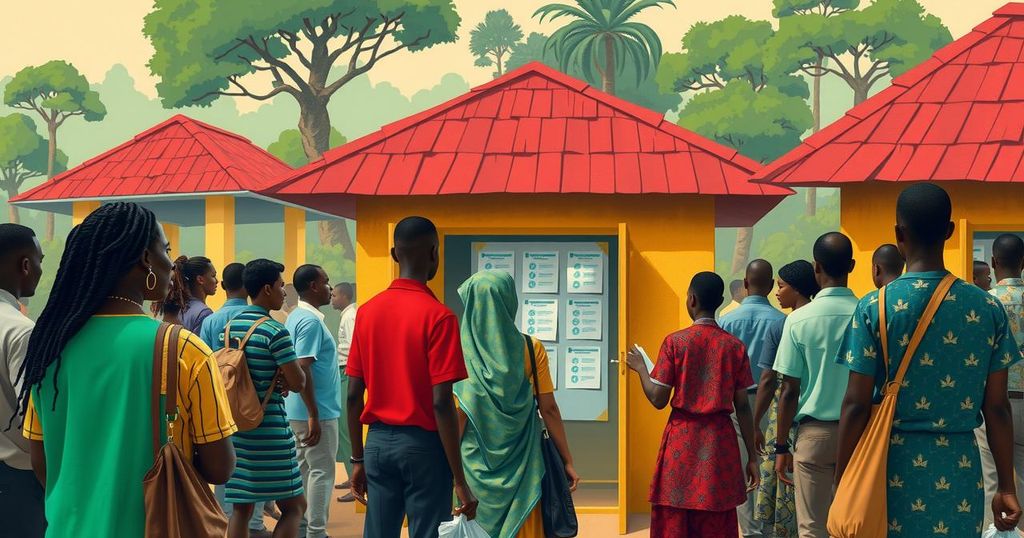Gabon Holds Presidential Election Following 2023 Military Coup

Gabon held its first presidential election since the 2023 military coup, as citizens aim to legitimize the new military rule under General Oligui Nguema. Eight candidates, including former Prime Minister Alain Claude Bilie-By-Nze, are contesting. Voter sentiment towards the military’s governance is mixed, reflecting a desire for change amid issues of transparency and economic hardship.
On Saturday, voters in Gabon participated in a pivotal presidential election, marking the first since the military coup in 2023. This election serves as a significant test for the military rulers, who aim to solidify their authority following the overthrow of a political dynasty that spanned over five decades. With approximately 920,000 registered voters, including over 28,000 from abroad, the election is highly anticipated amid the country’s struggles with poverty, despite its oil wealth.
The coup leader, General Brice Clotaire Oligui Nguema, who has been in power since toppling President Ali Bongo Ondimba nearly two years ago, seeks a seven-year term. While Bongo was initially detained due to the coup, he was released a week later, and although his family faced corruption charges, Bongo himself remains uncharged. To legitimize military rule, Oligui Nguema promised to restore civilian governance through credible elections, campaigning under the slogan “We Build Together.”
A new electoral code was adopted by parliament in January, allowing military members to run for office, further complicating the electoral landscape. Gabon’s recently amended constitution also imposes a seven-year presidential term, renewable once, while banning family succession, and abolishing the prime minister’s position.
Eight candidates are contesting for the presidency, with the main competition arising from Alain Claude Bilie-By-Nze, Bongo’s former prime minister. Bilie-By-Nze, who aims to reform public finances and reduce ties with France, expressed skepticism about the election’s fairness, stating that, “Everything has been done to lock down the vote.”
Despite the changing political dynamics, Gabon continues to maintain a military partnership with France, hosting more than 300 French troops. While Oligui Nguema has not proposed the withdrawal of these troops, Bilie-By-Nze indicated a willingness to renegotiate such ties, declaring that “no subject is off limits” in these discussions.
As polling stations opened, diverse groups of voters lined up in Libreville, often voicing their preferences. Jonas Obiang indicated his intent to vote for Bilie-By-Nze, criticizing Oligui Nguema’s government for its continuity with the previous administration. Similarly, Antoine Nkili articulated disappointment in the military’s failures to reform, stating, “They promised to reform the institutions, but they haven’t.”
Conversely, some citizens, like Jean Bie, have praised Oligui Nguema for advancing several development projects, expressing hope that the administration will continue its progress in the coming years. This election holds the potential for significant changes in Gabon’s political landscape, underscoring the nation’s transitional phase following the military coup.
The presidential election in Gabon represents a crucial juncture following the 2023 military coup. With General Oligui Nguema aiming to legitimize his rule amidst evolving political dynamics, the presence of a challenging contender such as Alain Claude Bilie-By-Nze reflects a desire for reform among voters. As citizens cast their ballots, the outcomes may reshape Gabon’s governance and future relations, particularly with France.
Original Source: www.news4jax.com






